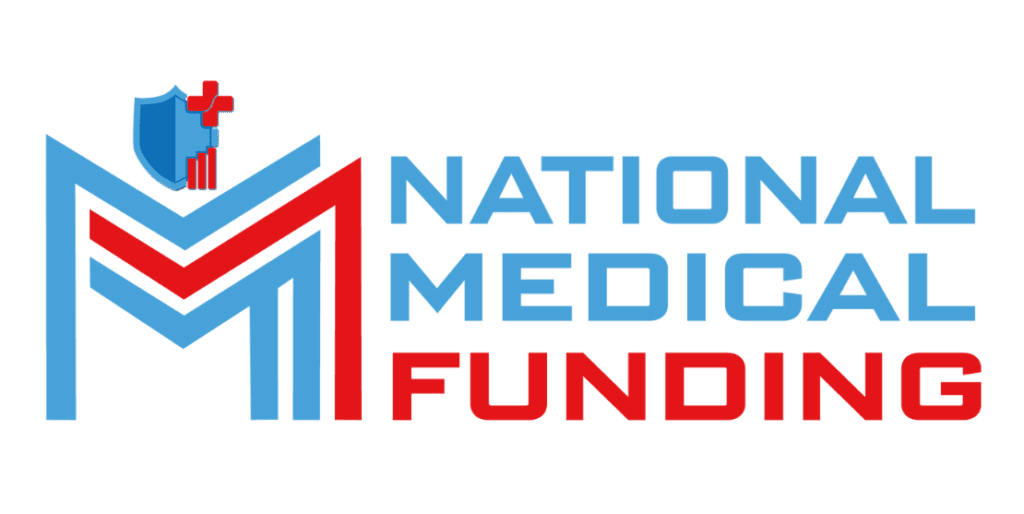
A Checklist for Securing Your First Small Bus
Taking the First Step: Why You Need a Loan Starti...

Saturday and Sunday – CLOSED
support@nationalmedicalfunding.com



When it comes to securing loans for medical professionals, lenders did not give only approval without digging. They rely on a timeless structure called 5 CS of 5 CS credit. This structure helps the lenders assess whether your medical practice is financially healthy, reliable, and capable of repaying the loan. Whether you are applying for healthcare finance solutions or considering long -term healthcare funding solutions, understanding 5 CS gives you a competitive edge.
In this guide, we will break each of the 5 CS of credit in detail – what they mean, why they matter, and how can you strengthen them before applying for your medical practice loan. We’ll also connect the dots to helpful strategies and resources, including insights from this guide on exploring loan options for medical professionals.
The first is “C” lender character. This is not about your personality – it is about your reputation with money. Lenders want to know one thing: Can they trust you to pay the loan?
They will check your credit history, how have you handled the bill and your professional background in the past. If you pay on time, avoid too much loan, and show financial responsibility, you will be revealed as reliable. For doctors and healthcare professionals, the stability of your career and the success of your practice also adds this trust.
To improve this area, keep an eye on your credit score, pay outstanding loans, and do not forget to highlight your professional achievements. For more tailored tips, check out this resource on medical practice startup loans, which covers ways to build lender trust from the ground up.
The capacity is about your ability to repay the loan. The lender dives to evaluate your income, revenue streams and debt-to-income ratio to dive if your medical practice generates sufficient cash flow to support monthly payments.
Think of it in this way: Even if you are reliable, a lender will not proceed until they see that your practice has a financial muscle to manage new loans with existing obligations. For medical practices, this often includes the patient’s volume, billing system and seasonal rash check.
To improve your capacity, make a detailed financial plan. Show future income estimates and underline how the loan funds will help expand your revenue currents. With healthcare funding solutions to suit the practices, you can balance development by demonstrating the strength of repayment.

The third is “C” capital – your personal and professional investment in practice. Lenders want to see that you have “skin in sports”. This means how much money or property you are committed to for your own money or property.
Capital assured the lenders that you are not fully relying on their financing to maintain your practice. The more you contribute, the lower the risk of the lender. For example, savings, equipment, or real estate invested in the responsibility and stability of investing in your practice.
If you are starting, find out options such as medical practice startup loans to strategically complement your capital without overaxiting yourself. A strong balance between personal investment and external funding holds you as a reliable borrower.
The collateral serves as a safety trap for lenders. This refers to the assets that you can pledge to secure the debt – such as equipment, property, or receipt. If repayment becomes an issue, lenders know that they have a backup scheme.
For medical practices, high-value clinical equipment in the collateral may be included in the clinic assets or receipt accounts. While the collateral lender reduces the risk, it also indicates your commitment to the loan. Practice with solid collateral is often able to interact on better debt terms and low interest rates.
However, it does not seem that the collateral is always a requirement. Many lenders now provide flexible healthcare finance solutions that weigh more heavy to other CS. The key is understanding how the collateral strengthens your application and documentation is prepared when needed.
Conditions are often overlooked but incredibly important. They cover the external factors that could affect your loan approval—like the current economic climate, healthcare industry trends, and even the purpose of your loan.
For example, lenders might view a loan for expanding patient services more favorably than one aimed at covering temporary expenses. They also evaluate the broader market conditions: is healthcare in your region growing, stable, or under strain?
You can strengthen this “C” by presenting a clear, compelling case for how the loan supports practice growth. Align your request with industry opportunities, and emphasize your strategy for navigating risks. This ties into strategic financing insights for medical practices, which explore how to position your practice for long-term success.

Unlike other industries, healthcare works with unique challenges – such as insurance delays, regulatory requirements and special equipment. This is why 5 CS credits are particularly important for medical professionals.
Lenders know that highly skilled doctors also face unexpected revenue cycles. By assessing all five regions – characteristics, capacity, capital, collateral and conditions – they get a balanced approach about the stability of your practice. As a borrower, you can also use 5 CS to identify weak points and strengthen your financial profile before applying.
This overall approach not only makes 5 CS a lender tool, but also makes a roadmap for your financial readiness. When combined with smart planning and healthcare funding solutions, they establish you for the success of loan approval.
Preparation is everything. To maximize your chances of securing favorable terms:
By preparing for all five areas, you’ll present a stronger case to lenders. These proactive steps align with this guide on smart financial moves for medical practices, helping you confidently navigate the loan process.
Even well-prepared practices can stumble if they overlook key details. Common mistakes include:
Avoiding these pitfalls shows lenders you’re both realistic and responsible. It also strengthens your reputation as a professional who takes financing seriously.
Ultimately, the 5 Cs of Credit aren’t just for lenders—they’re for you too. By mastering this framework, you can:
Whether you’re considering loans for medical professionals or seeking tailored healthcare finance solutions, applying the 5 Cs is like carrying a compass. It keeps you aligned, focused, and confident as you navigate the lending process.
A medical practice does not feel heavy by obtaining a loan. Hugging the 5 CS of credit by hugging the character, capacity, capital, collateral and conditions – you are preparing not only to meet the lender expectations, but also strengthening the financial foundation of your practice.
Bottom Line: Lenders “yes,” and want to help 5 CS, this is possible. Use them as a checklist, prepare well, and find out a wide range of healthcare funding solutions available to professionals today.
Taking the First Step: Why You Need a Loan Starti...
Why Mergers & Acquisitions Are Reshaping Healthcare...

Fuel your medical practice’s growth with financial solutions tailored to your needs. We’re here to support independent practitioners and group practices with strategies built for success.


Mon Fri: 8:00am – 6:00pm
Saturday: Closed
Sunday: Closed
Copyright © 2025 National Medical Funding